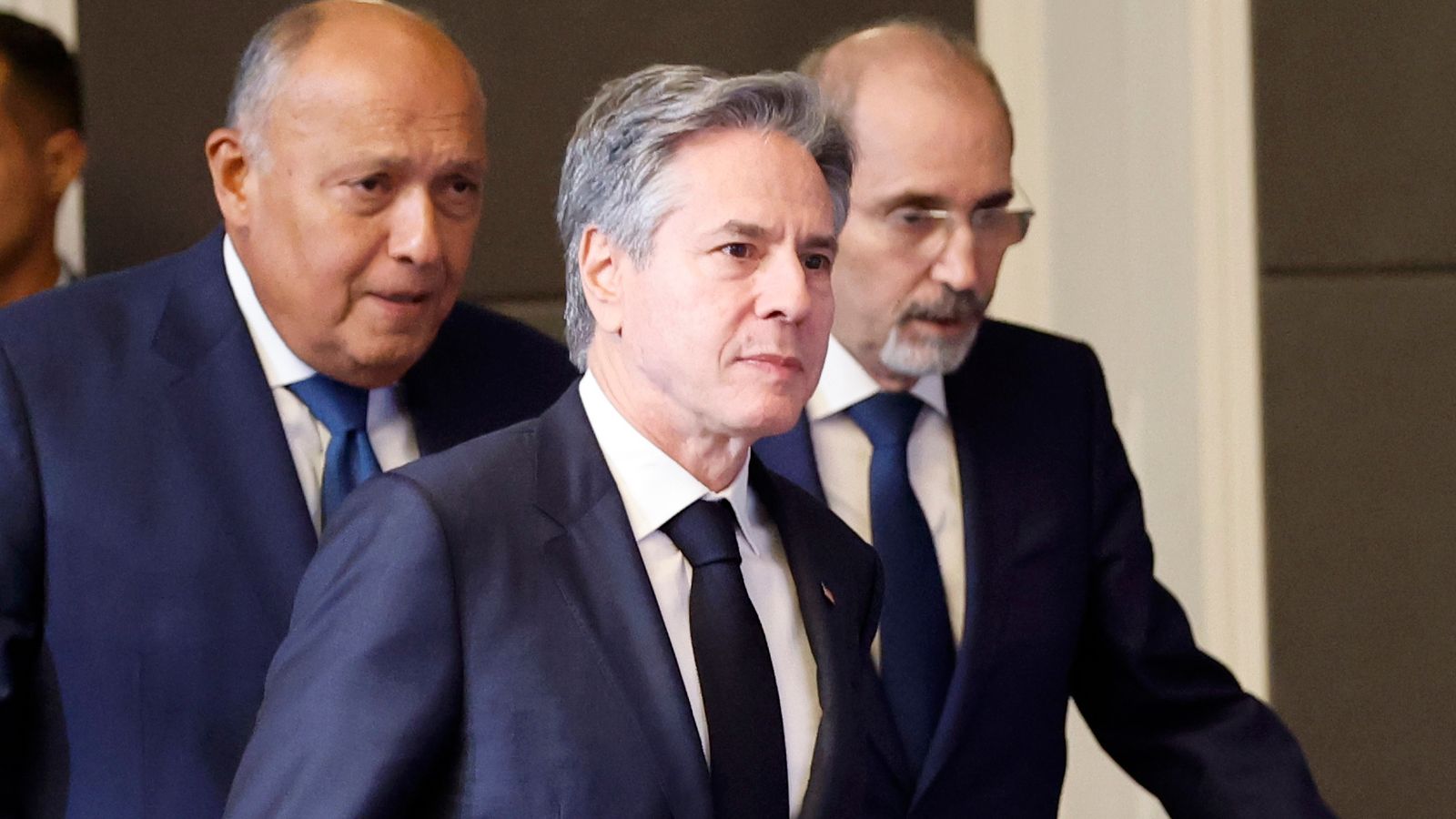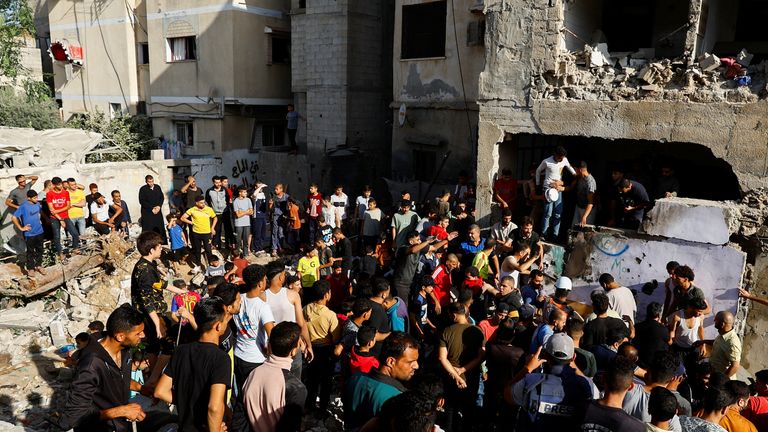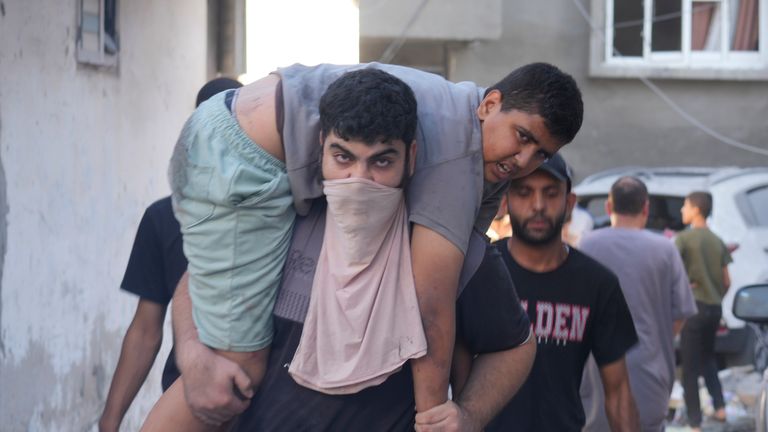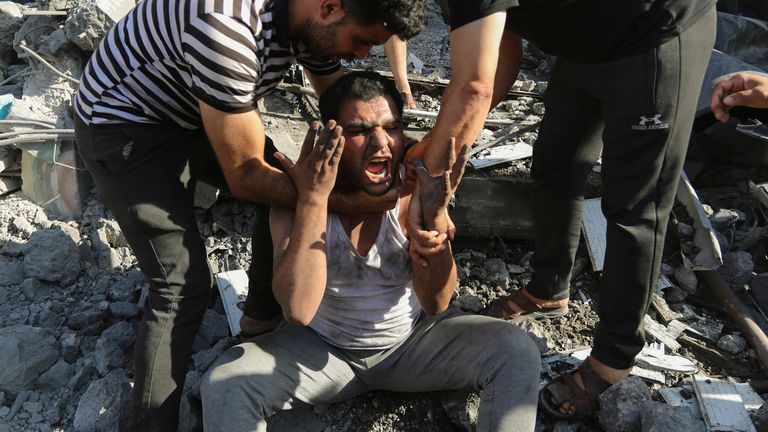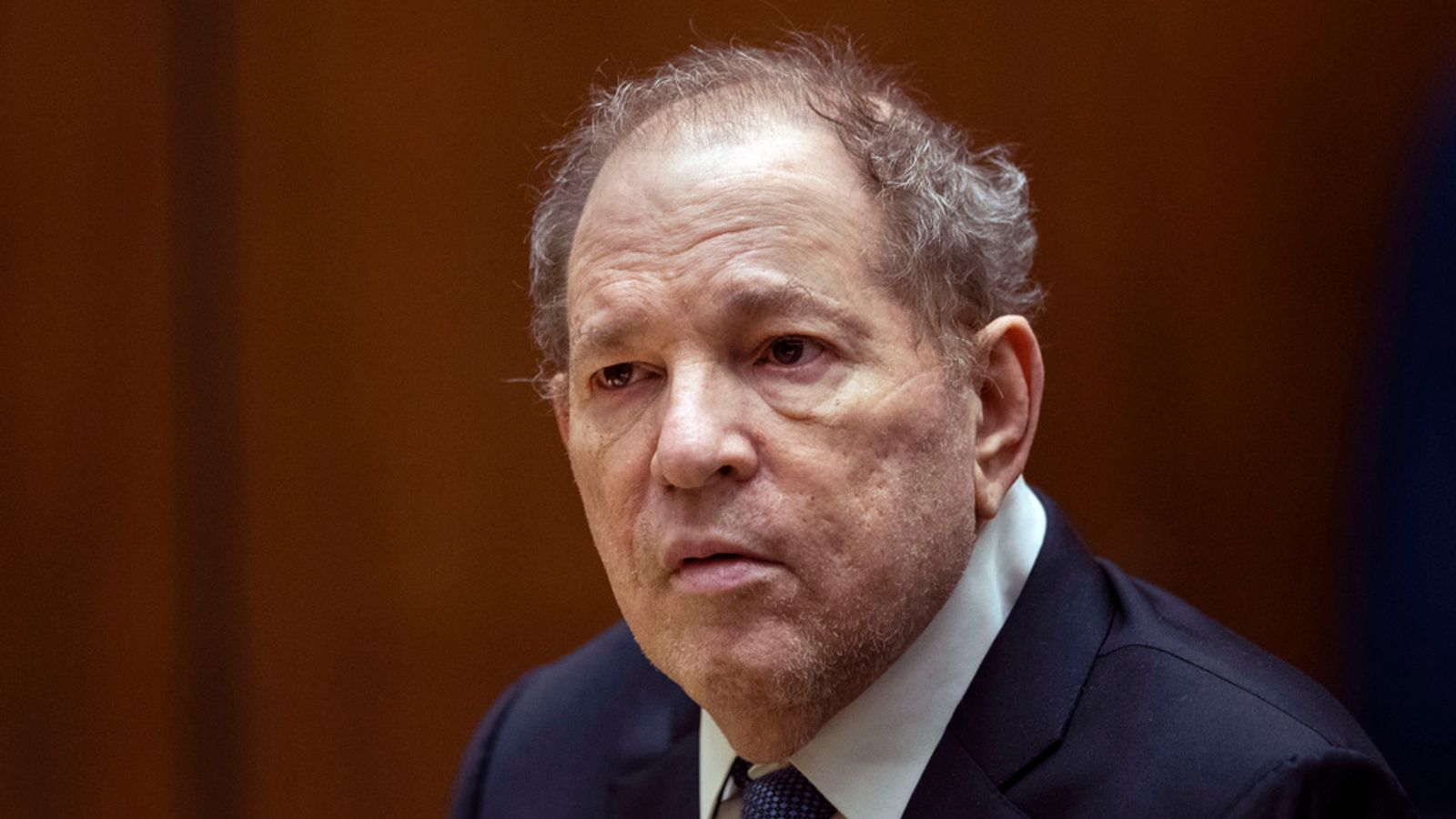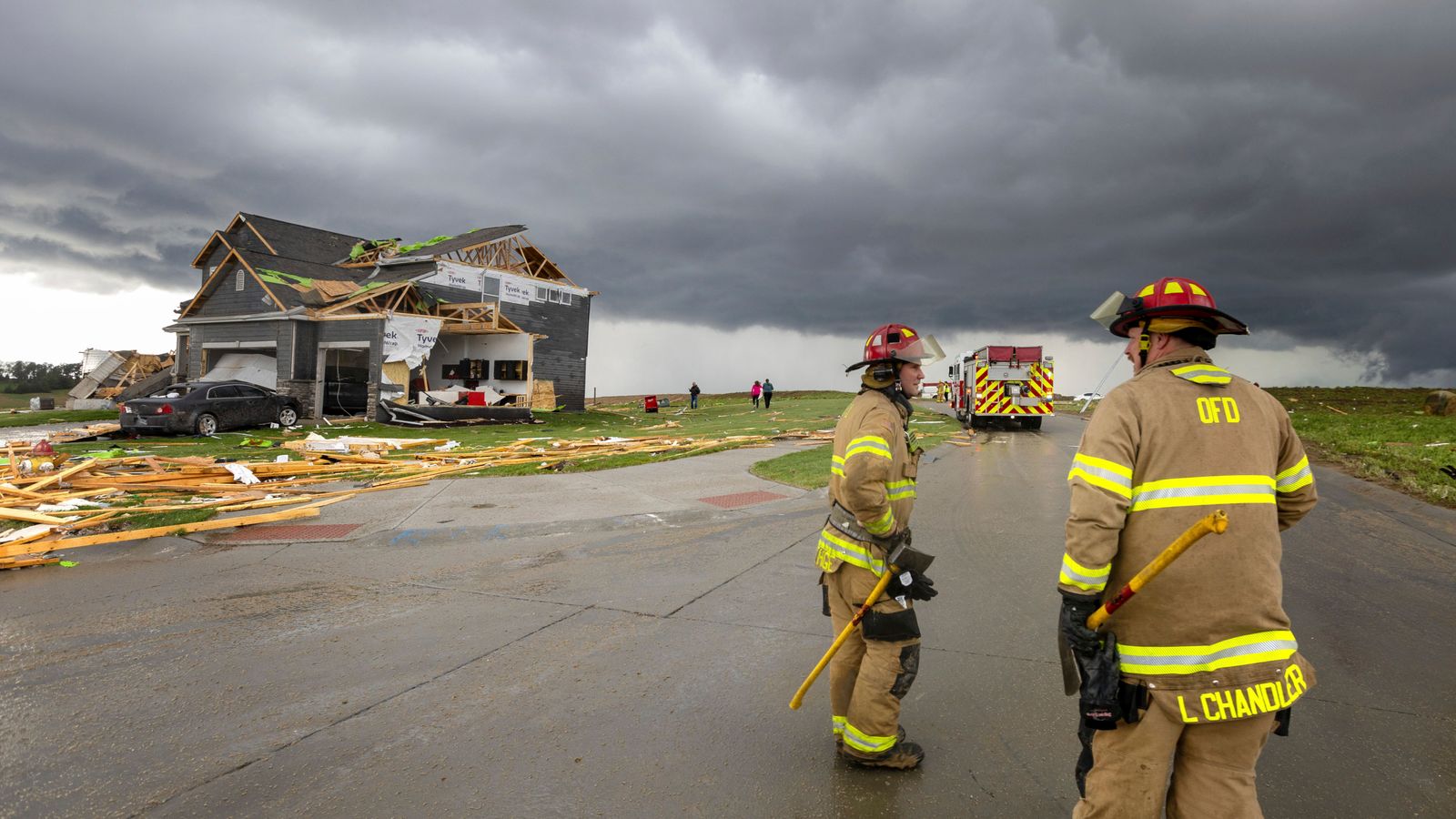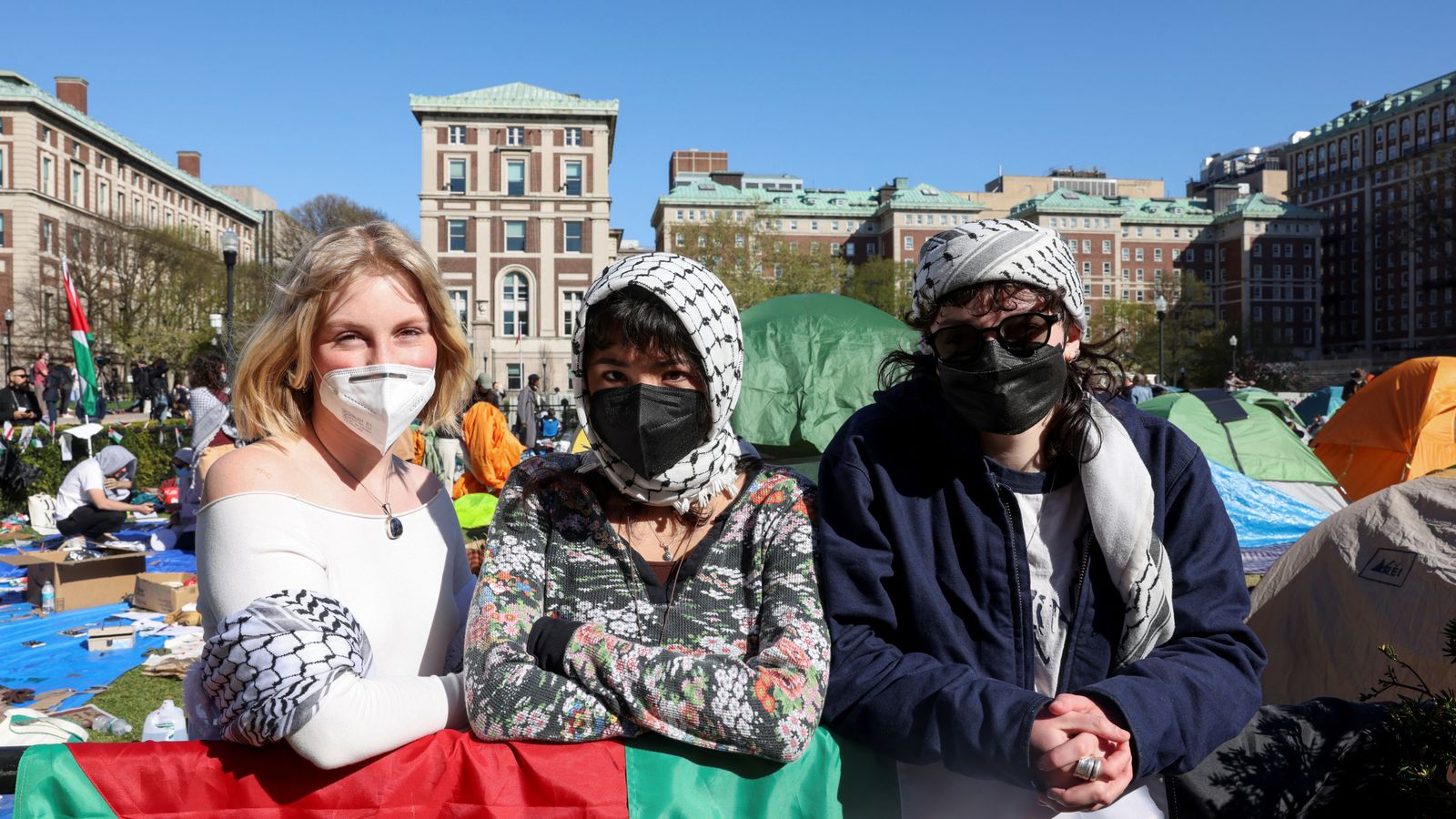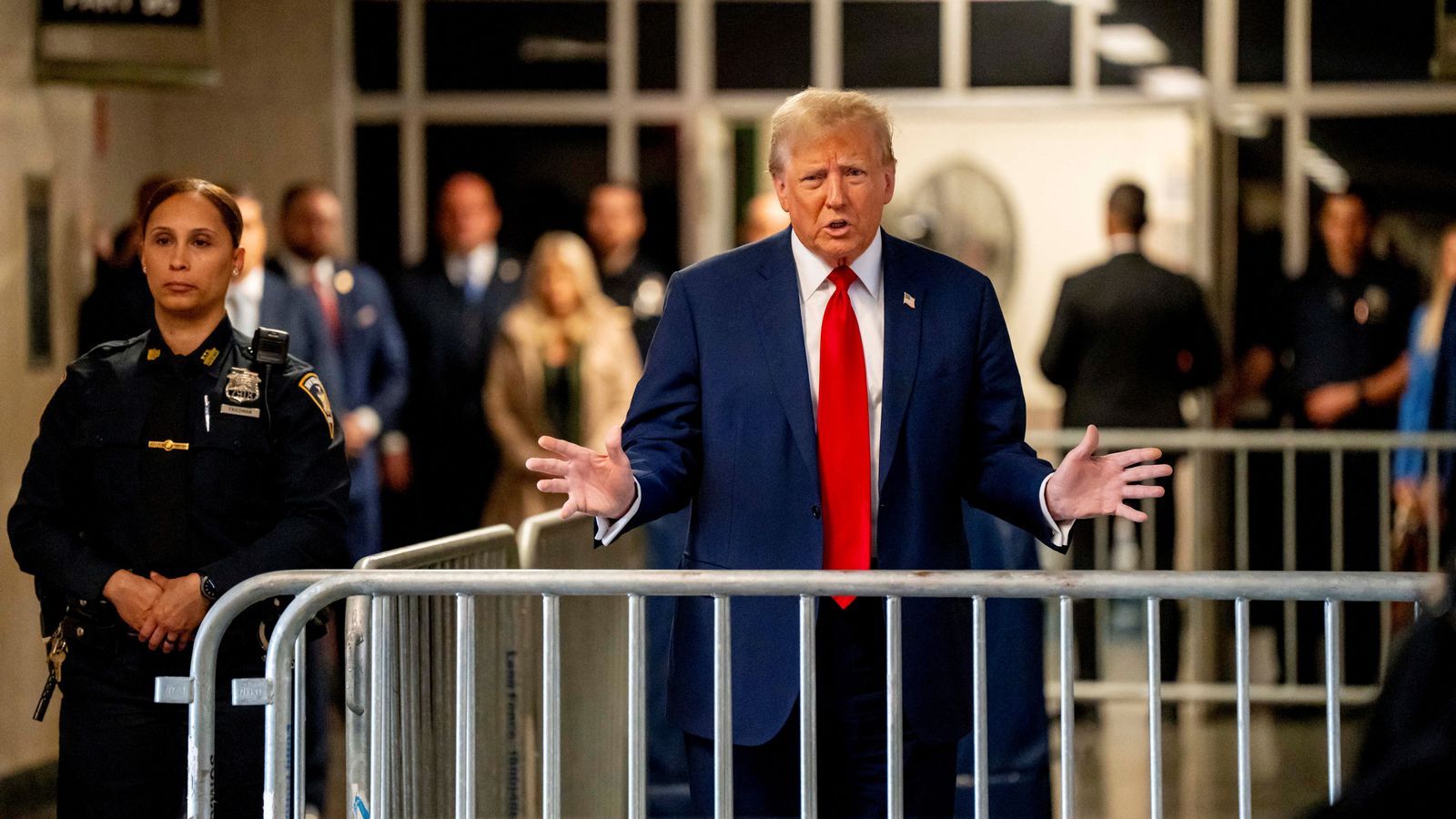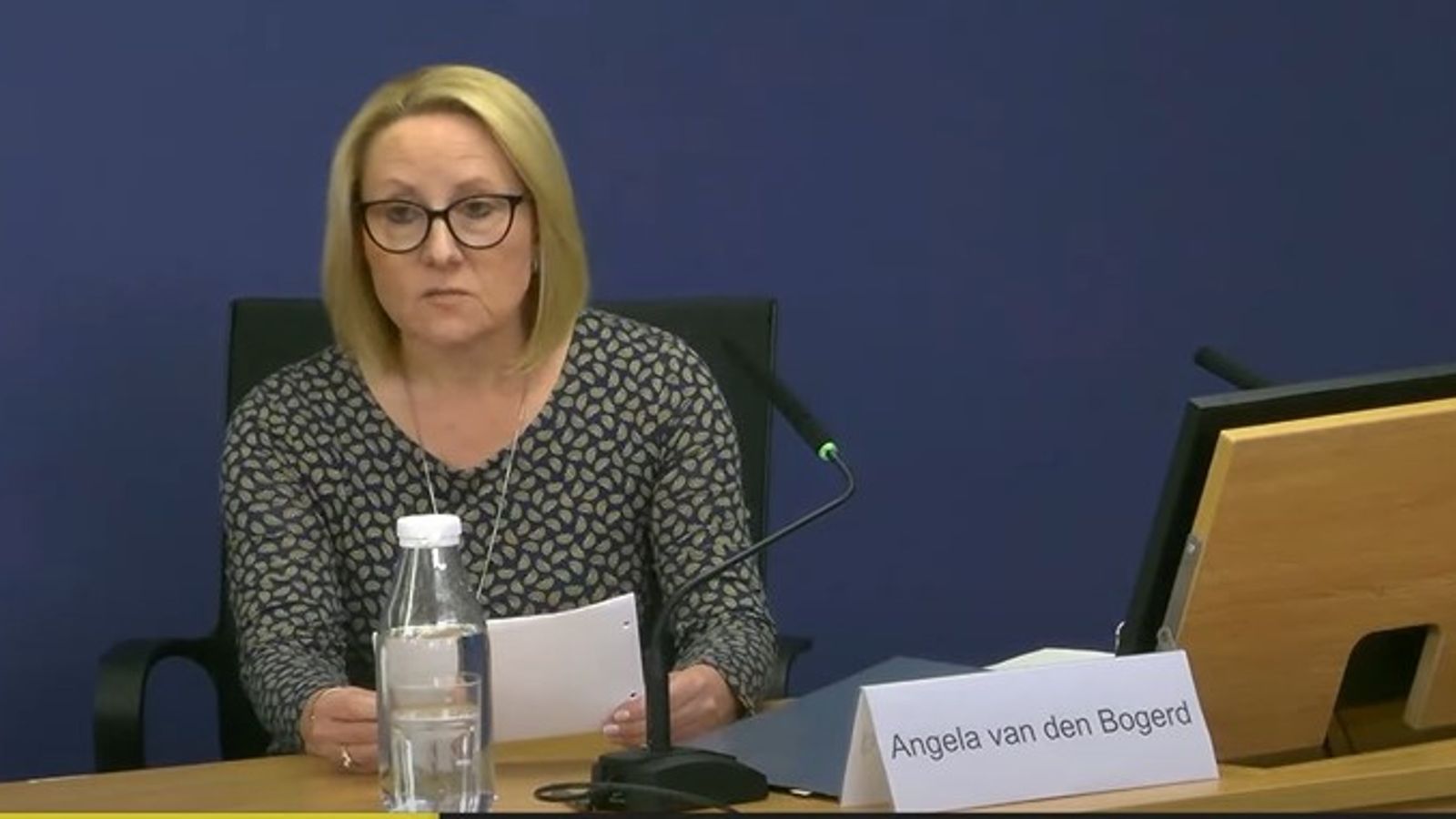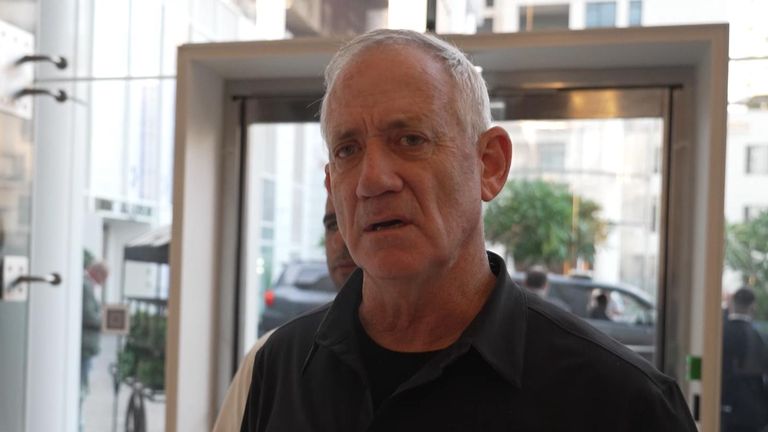
Maybe there will be a breakthrough in the hours or couple of days ahead.
But it doesn’t feel likely from the language we’ve heard from the men (they are all men) driving the war and the diplomacy in this conflict.
Antony Blinken, the US secretary of state, spent Friday in Israel meeting the Israeli leadership and Saturday in Jordan meeting Arab leaders.
He was threading the tightest of diplomatic needles: maintaining full support for Israel’s right to defend itself while demonstrating to the world that America is capable of influencing events to bring about an end to civilian casualties.
Follow live: Several reportedly killed in blast at UN shelter in Gaza
The Israeli objectives are clear and perhaps summarised most succinctly by war minister Benny Gantz to me on Friday.
“Everything that happens in Gaza right now is rightly connected to break Hamas and release the hostages. All the rest are simply details.”
Those “details” were outlined by the Jordanian foreign minister alongside Mr Blinken in Jordan.
He reminded the world that 3,700 children have died in Gaza in the last four weeks. That’s more, he said, than all the children killed in all conflicts globally since 2019.
He added that the situation in Gaza will create “a sea of hatred that will define generations to come”.
That’s the deep long-term concern. The damage may already have been done – hatred sowed through events generated by the protagonists on both sides – but the extent of the impact depends, most immediately, on the ability to stop the bloodshed in Gaza.
Read more:
Average person in Gaza living on two pieces of bread per day
Briton tells of ‘chaos’ in leaving Gaza
Pro-Palestinian protesters arrested in London
What’s the difference between a ceasefire and a humanitarian pause?
The Arab nations and the United Nations secretary-general are calling for an immediate ceasefire.
The Americans, the British and many other Western nations are choosing different language – a humanitarian pause.
What’s the difference? A ceasefire is political in nature, providing parameters to allow for negotiations. There’s no way Israel is anywhere near close to negotiations with anyone in Gaza. Even on hostages, they are clear: unconditional release now.
A humanitarian pause is, as the name suggests, humanitarian, not political. Its singular aim is to provide space for aid to get in and civilians to get out.
Israel believes aid will be passed to Hamas
So what’s the problem? Well, Israel doesn’t believe that the aid (fuel for hospitals included) won’t be passed to Hamas for war purposes.
America’s special envoy to the crisis, David Satterfield, said this weekend that he has not seen any attempts by Hamas to interfere with or take aid shipments destined for civilians from the few trucks allowed in last week.
But that hasn’t prompted Israel to change course so far. It begs the question: how much influence does Biden’s America really have over an ally that changed after the 7 October attacks?
Gaza fuel will only last a few days
What’s at stake? Well beyond the colossal civilian death toll (and the lasting impact that will have) here are a few numbers passed to me by a senior UN official this weekend.
Gaza has about 160,000 litres of fuel left. That will last a few days. After that, the hospital generators shut down, the sewage system shuts down, and the lights go out.
There are about 9,000 cancer patients in Gaza right now. There are 1,000 dialysis patients, 50,000 pregnant women.
Some 5,000 women give birth every month in Gaza; that’s about 160 babies born every day in hospitals under bombardment which could soon have no electricity.
These are the “details” as Israel responds in the only way it says it can to its darkest day exactly a month ago.

